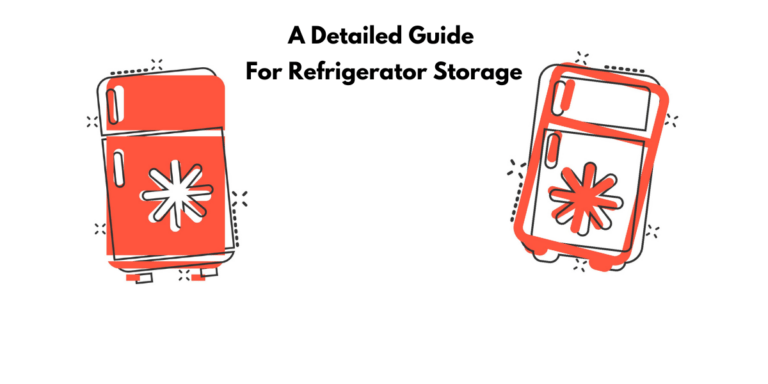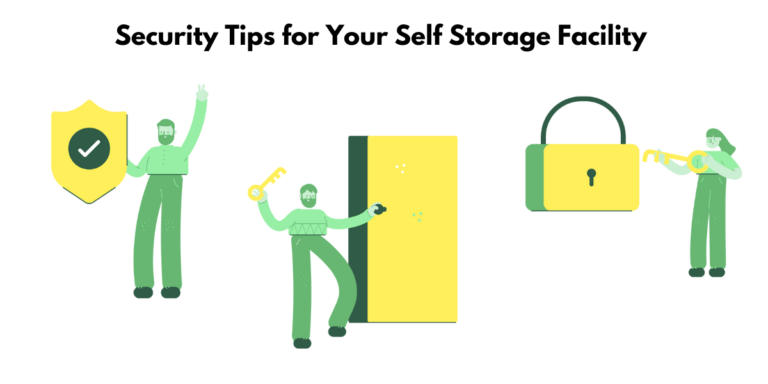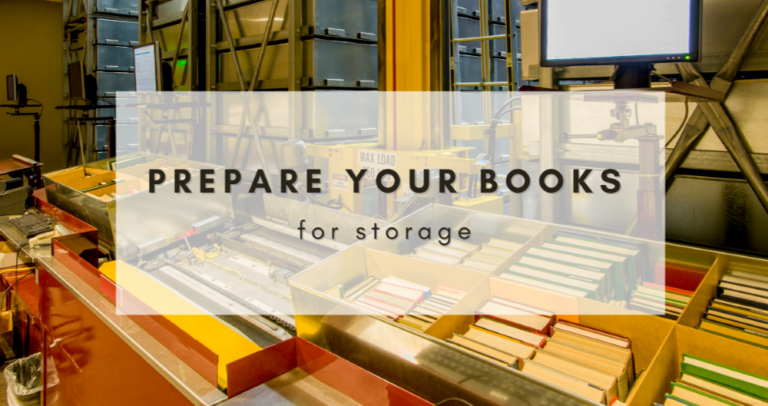Commercial Storage Units for Rent: Is renting out self-storage units a feasible investment?
Commercial Storage Units for Rent
Self storage is a $38 billion industry in the United States, with over 50,000 storage facilities nationwide. And it’s only getting bigger – the demand for self storage units has been increasing steadily for the past decade.
But what does that mean for investors? Is renting out self storage units a feasible investment?
Let’s take a look at the numbers to find out.
What are commercial storage units?
Commercial storage units are an attractive investment for businesses due to their cost-effectiveness compared to renting office space. These units provide easy access, electricity, and security, making them suitable for storing items that are not used daily. Furthermore, businesses can benefit from the flexibility of renting out self storage units without having to commit long-term.

What is the process for renting out a self storage unit?
What is the process for renting out a self storage unit? Here are the basics:
Step 1: Make an ad online
Making an advertisement online is the first step in renting out a self storage unit because it allows potential tenants to find available spaces quickly. Internet access and phone lines are also necessary for effective communication between landlord and tenant. Storage units and office spaces can provide businesses with a flexible space to store supplies and work, making them perfect for those who need temporary storage solutions.
Step 2: List your space
Listing one’s space before renting out a self storage unit is important to keep supplies organized and accessible. By doing so, potential renters can find convenient locations that are easy to access right on their way to the next open house. Additionally, listing one’s space before renting out a self storage unit can help potential renters get better deals since they will have dedicated storage space with no handling fees for up to 50 items per month and access to priority deliveries at actuals.
Step 3: Take excellent pictures of your space
Pictures are an important factor to consider when renting out a self storage unit. Proper images of the unit can help potential customers get an idea of what it looks like and provide them with information about features like shelving that can be used to maximize storage space.
Step 4: Be approachable and personable
When renting out a self storage unit, it is important to be approachable and personable to make potential customers feel welcome. This creates a secure, friendly atmosphere where customers feel comfortable knowing their possessions are safe and secure. Being personable can also help build trust with the customer, which can lead to repeat business in the future. Additionally, having electronic keypad access and controlling who is allowed into and out of the facility through an app can add an extra layer of security for peace of mind.
Step 5: Approve your future renter
Knowing that the person renting their storage unit is reliable is important. To ensure this, it is necessary to research the tenant, check references and ask questions about their plans for using the space. Additionally, it may be prudent to require additional paperwork or payment upfront to protect oneself from any potential problems down the line.

How to calculate return on investment (ROI) in a self storage rental business?
Are you thinking about investing in a self storage rental business? If so, you’re probably wondering what kind of return on investment (ROI) you can expect.
However, you can follow some general guidelines to understand better what ROI you can expect from a self storage rental business.
Here’s what you need to know about calculating ROI in a self storage rental business:
Step 1: Calculate the cost of getting a self storage rental business
The costs associated with renting self storage units for business purposes vary depending on the size and location of the unit. Generally, there will be a one-time fee to cover overhead costs such as setup, maintenance, and insurance. In addition, monthly fees are required to cover rent and utilities such as heating and lighting. It’s important to factor in these costs when determining if renting out self storage units is feasible.
Step 2: Calculate the monthly rental income from the self storage rental business
To calculate the monthly rental income from a self storage business, one must consider the cost of renting out a storage unit monthly. Additionally, they must account for any seasonal business that requires extra storage space during certain times of the year. By taking these factors into account, an investor can accurately assess whether or not investing in self storage units is feasible.
Step 3: Calculate the expenses related to the self storage rental business
When calculating the expenses related to a self storage rental business, one should consider the cost, any heating or lighting needs, and the time the unit will be used. One can expect to pay less for smaller units and more for larger ones. In addition to these costs, there may be additional fees such as deposit amounts or late payment charges. It is important to consider all costs associated with renting self storage units before deciding whether it is feasible.
Step 4: Calculate the net income from the self storage rental business
The return on investment for a self storage rental business can be calculated by taking the income generated from renting out the storage units and subtracting any expenses associated with owning and managing them. This difference between income and expenses is then divided by the total cost of the investment, which includes both purchase price and ongoing costs, to determine ROI. Factors that may affect ROI include occupancy rates, rent prices, maintenance costs, location of the storage units, size of available space for rentals, competition in nearby areas, and any applicable taxes or fees.
Step 5: Calculate the return on investment (ROI) of the self storage rental business
To calculate a self storage rental business’s return on investment (ROI), it is necessary to compare the initial investment cost against any income generated from renting out units. Factors such as the size and type of unit and monthly or yearly lease contracts can influence ROI. Market trends, location, and customer demand will also affect how much money can be made from a specific storage facility. It is important to consider all these variables when calculating ROI so that potential investors get an accurate picture of what their return may be.
Step 6: Compare the ROI of different self storage rental businesses
When considering the ROI of different self storage rental businesses, it is important to consider each business’s location. The cost of renting a storage unit on a month-by-month basis can be more affordable than leasing commercial space, so this is an option for businesses needing extra space with limited budgets. Additionally, when commercial spaces are used for storage purposes rather than their intended use, they can be put to better use and yield higher returns. Therefore, researching different self storage rental businesses and understanding how their locations affect the cost and return on investment can help investors determine which business is most suited to them.

What should you consider before investing in a commercial storage facility?
If you’re considering investing in a commercial storage facility, you should keep a few things in mind. Here are a few factors to consider before making your investment:
Security
Security is important to consider when investing in a commercial storage facility due to the amenities available, such as security cameras and electrical outlets. These features ensure that items stored in the facility are well protected, which can help protect investment in rental units. Furthermore, having an on-site security system can also provide peace of mind for renters knowing their possessions are safe while they are away.
Location
The location of a commercial storage facility is important to consider before investing because it can affect the amenities available, such as security cameras and electrical outlets. Additionally, certain locations may offer office space for businesses needing secure parking. Therefore, when choosing an appropriate rental space for self storage units, investors should be mindful of their location’s features and services.
Facility amenities
When renting a commercial storage unit, one must consider the amenities and features necessary for one’s business. It is beneficial to check with the facility beforehand to ensure that what one wishes to store is allowed on-site. Additionally, one should ask their facility manager about access and lane widths and be aware of gate hours when accessing their storage unit. Amenities such as security cameras, file boxes, and electrical outlets are desirable when selecting a commercial storage space.
Unit sizes
Investing in a warehouse storage facility requires careful consideration of the unit size. The size of the unit can determine how much can be stored, how accessible, and how secure it is. Depending on the items going into storage, larger units may be needed to ensure enough business space for everything without overcrowding. Different sizes also accommodate different items, such as boxes and small furniture pieces that should not fit inside smaller units.
Access
Access is an essential factor for businesses when considering the use of commercial storage units. Access to a storage unit during business hours is especially important, as it allows the business to retrieve items quickly and easily. Additionally, many commercial storage units provide security measures such as security cameras, fenced facilities, and conveniences like package delivery, electrical outlets, and file boxes. All these factors ensure that any investments in renting a self storage unit are secure and successful.
Pricing
When investing in a commercial storage facility, it is important to consider factors such as price, location, and amenities. Price should be one of the primary considerations when renting a commercial storage unit; look for one that provides the most value for your money. Location is also important to evaluate; choose a facility close to where you need the storage. Lastly, assess each facility’s security features and ensure it meets your needs before committing to a unit.
Climate control
It is important to consider climate control when considering business storage units because it helps protect stored items from the elements. Temperature control ensures that the temperature in the storage unit stays within a range of 65 to 85 degrees, which can help to prevent damage from extreme temperatures or humidity. Additionally, items that are sensitive to extreme temperatures or humidity, such as those found in clothing stores, should always be kept in a climate-controlled environment.
Customer service
Customer service is paramount when considering a commercial storage facility. A storage unit must offer renters the security and convenience they need and extra perks such as package delivery. Additionally, the customer service associated with a commercial storage facility can help ensure that businesses have access to the office space they need in their self storage units.
Insurance
When renting out self storage units, it is important to get insurance to protect both the owner and their property. Commercial storage facilities typically provide extra security measures beyond those offered at typical self storage companies. This includes 24/7 monitoring, overhead lights and electrical outlets, and access by car. To ensure maximum investment protection, shop for an insurance policy that covers all the security measures needed in a commercial storage facility.
Maintenance
When owning a commercial storage unit, it is important to consider potential maintenance needs. This includes ensuring that the unit is secure and in good condition, checking for signs of moisture or water damage, ensuring temperature-sensitive inventory is stored in climate controlled storage units with drive-up access, making sure the units are clean and free of clutter for customer convenience, and regularly inspecting locks and security systems. Additionally, owners should be aware of any additional services offered by their storage facility, such as package delivery.
Reservation
When considering investing in a commercial storage facility, it is important to make a reservation to ensure that the unit they choose meets their specific needs. Depending on the type of business and its inventory, the size and features of a particular storage unit may be more suitable than another. With flexible lease terms available at RISE Commercial District, businesses can find units that fit their needs while also taking advantage of features such as automatic door openers and car remotes. Additionally, businesses can use business storage solutions for promotional materials or small offices to save money on inventory by storing it nearby.
Vehicle parking
Investing in a commercial storage facility can be an excellent option for businesses, and one of the most important considerations is vehicle parking. The ability to conveniently and securely store company vehicles can be essential for businesses with many vehicles, so it is important to ensure that any potential self storage facility offers sufficient parking spaces.
Package delivery acceptance
Package delivery acceptance is important for businesses considering a commercial storage facility because it ensures that the facility can handle large packages and be accessed quickly and easily. This helps ensure that packages are delivered safely, securely, and on time.
Lease terms
Investing in a commercial storage facility requires an understanding of the lease terms offered by the provider. Knowing the length of a lease and any upgrades that can be made to accommodate changes in business needs or goals will help investors make an informed decision about their investment. Additionally, understanding how access is provided to units and if additional amenities such as reception areas and conference rooms play an important role in determining whether leasing out storage units is a feasible investment for businesses.
Inventory management
Inventory management is essential for commercial storage units, as it helps ensure that the right inventory is always available. It also helps to keep costs down by only storing necessary items in a unit. For retail businesses, climate-controlled storage units provide extra protection from extreme temperatures and help create contingency plans in case of unexpected changes or emergencies. By implementing an effective inventory management system, businesses can ensure their products are secure and ready for sale when needed.
Internet access
Internet access is an important feature for commercial storage facilities, enabling customers to quickly and easily access their stored items. With internet access, customers can check the status of their belongings from any location. Additionally, customers can use online tools to make payments or change their rental units from anywhere with an internet connection. Commercial storage facilities can make it easier for individuals and businesses to store items safely and securely by providing internet access.
Video surveillance
Video surveillance is an important security feature for commercial storage units as it protects against theft and vandalism. It also allows facility managers to monitor the premises and track who is accessing the facility, which can help prevent unauthorized activity. Additionally, video surveillance helps deter potential criminals from even attempting to access the facility in the first place.
Ventilation
It is important to have ventilation in a commercial storage unit because it prevents the accumulation of harmful or hazardous materials, thus keeping stored items safe. Without proper ventilation, there is an increased risk that stored items may become damaged due to unfavorable temperatures and humidity levels. Furthermore, proper ventilation reduces the chances of mold or mildew forming on stored goods and helps reduce musty odors.
Promotion
Promotional strategies for commercial storage units include creating a presence in the local community, offering discounts and specials, providing information on products and services, communicating with customers online and through social media, advertising through traditional channels such as radio or print ads, hosting events to draw attention to the business, and partnering with other businesses to increase visibility. By taking advantage of these strategies, businesses can create an effective promotional campaign to draw customers looking for a convenient storage solution.
Equipment rental and storage
Commercial storage units typically have strong security features such as reinforced doors, locks, and alarms. These features help to protect a business’s items from theft or vandalism. In addition, most commercial storage units come with climate control options, adjustable shelving systems, and easy access for loading and unloading heavy items. The benefits of renting storage equipment include adjusting the unit’s size according to a business’s needs and increased efficiency due to improved organization capabilities. Additionally, renting allows businesses access to better quality equipment than they may be able to afford if they buy it outright.

FAQs
Here are some of the most frequently asked questions about commercial storage units:
Can any unit be used for commercial storage?
The use of self storage units for commercial storage purposes is possible. Still, it is important to verify that the facility allows this type of usage and that the amenities and features needed for such a purpose are available. Before making an appointment, it is essential to ask the property manager if commercial storage can be used in the unit and whether or not one will be able to back in during peak hours. Not all self storage units are suitable for commercial storage, so speak with the property manager before committing.
Can you use a storage unit as a shop?
It is important to remember that storage units are generally unsuitable for conducting business activities such as making phone calls or holding meetings. Using a storage unit for purposes other than commercial items, such as working on a vehicle or operating machinery, is also not allowed. It is important to contact the storage provider before assuming that the unit can be used for commercial purposes. In most cases, customer delivery services may be accepted by the facility.
What types of businesses use commercial storage?
Businesses of all types can benefit from commercial storage units. Companies such as e-commerce retailers, realtors, and small office spaces can take advantage of the cost-savings and added organization that comes with renting a commercial storage unit. These units conveniently store excess inventory offsite rather than taking up valuable on-site space or leasing square footage. Commercial storage units also allow businesses to organize their tools and materials in an organized manner, which can help increase efficiency and productivity. Additionally, these storage solutions offer businesses the flexibility to find a temporary location for their operations if needed. Investing in a commercial storage unit is cost-effective and beneficial to many businesses.
How much does business storage cost?
Business storage can be costly, but affordable monthly rental rates are available. To find the right business storage units for their needs, they can review the size guide or contact one of the experts. By continuing to browse the site, they consent to its use of cookies. Self storage units are usually cheaper as leases are shorter in length, making them a more financially sound option than expanding facilities. Additionally, storage units generally have lower costs than commercial real estate, and heating and lighting are often included in the price.
How do you make money flipping storage units?
Investors can make money by flipping storage units. The process begins with researching the local market and finding a secure, well-maintained storage facility. Once they have identified a suitable space, they must determine whether rental rates are favorable compared to other available spaces in the area. If so, they can purchase the unit and rent it out to tenants looking for short or long-term storage solutions. As with any investment, investors must carefully screen prospective renters before signing any leases or agreements. Investors should also ensure that their facility meets all applicable laws and regulations for renting out self storage units before taking on tenants. Finally, it is important to monitor market conditions regularly and adjust rental rates accordingly to maximize return on investment from these properties over time.
- Commercial Storage Units for Rent: Is renting out self-storage units a feasible investment? - December 22, 2022
- How To Choose The Right Storage Unit Size: A Guide For Beginners - March 17, 2022
- Understanding Self Storage Insurance: What It Covers And How To Compare - September 29, 2021







